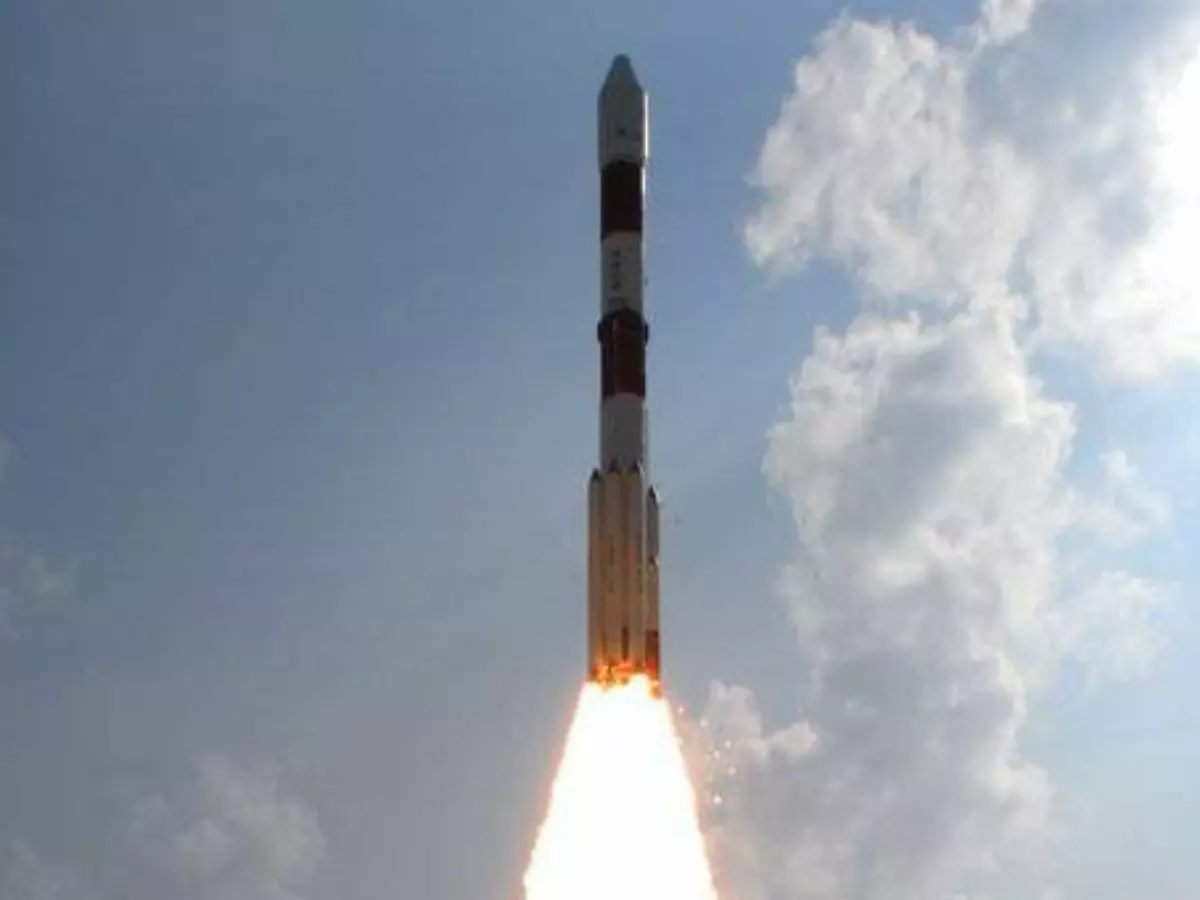Now That Chandrayaan-2 Has Been Launched, Here Are Future ISRO Missions To Look Forward To
Chandrayaan-2 was successfully launched on July 22 2019 and the entire nation celebrated the success of the space mission. ISRO has a planned map of how they are going to leave their mark in the space race. From planning to enter the sun&rsquos atmosphere to sending an orbiter to Venus ISRO plans to send another mission to Mars.

Chandrayaan-2 was successfully launched on July 22, 2019 and the entire nation celebrated the success of the space mission which is the first of its kind as it will explore the farther end of the moon (south pole). Now that Chandrayaan-2 is well on its way to make history, you might wonder what ISRO is up to, next. Let's just say it has a lot on its plate and there are some pretty exciting missions lined up. From planning to enter the sun¡¯s atmosphere to sending an orbiter to Venus, ISRO has a planned map of how they are going to leave their mark in the space race and take their research on various universal bodies forward.
Aditya L1 mission

Sun/Reuters
The Aditya-L1 mission will be ISRO¡¯s first probe to study Sun¡¯s atmosphere and corona. The launch of the same is expected to be sometime in 2019-2020 on a PSLV rocket. Corona refers to the outer layer of the Sun.
What¡¯s interesting is that this outer layer has a temperature higher than the surface of the Sun itself (6000 degrees Kelvin). How the corona's temperature is over a million degree Kelvin, is still a mystery for solar physics. This is what NASA's Parker probe is exploring currently.
Gaganyaan mission

Suit that ISRO might use for Gaganyaan/ Biplab Haldar and Sayan Basu
It was in 2018's Independence Day address that the Prime Minister of the country announced, that India will attempt to send astronauts into space. The spacecraft that will be used for the same will be 'Gaganyaan'. If the mission (scheduled for December 2021 - January 2022) is successful, India will become the 4th nation to send astronauts into space. With Rs 10,000 crore budget, Ganganyaan will be India¡¯s biggest space mission.
The Gaganyaan is already in the making, and the spacecraft is being designed to house the astronauts and the facilities that they will need, among other things. First unmanned tests for the mission are supposed to happen first in December 2020 and second in July 2021.
Mangalyaan-2 (Mars Orbiter Mission-2)

Partial disc of Mars captured by Mangalyaan/ISRO
After the first successful Mangalyaan, ISRO plans to send another mission to Mars sometime in 2022-2023, which will be Mangalyaan-2. ISRO and CNES (the French space organisation) were supposed to partner in the building of the MOM-2 module, but by 2018, there was no news of France being involved. The mission is supposed to go live sometime in 2022 - 2023 but the Indian government has already provided funds for the mission in 2017 budget proposal.
Chandrayaan-3 mission

Chandrayaan-2/AFP
Chandrayaan-2 has just launched and Chandrayaan-3 mission is already scheduled for the late 2020s. The Chandrayaan program is supposed to be a multi-mission space programme.
"The Moon is a good candidate as a staging point for carrying out our deep space human spaceflight missions, and Chandrayaan-2 will assess the suitability of the Moon for such activities," Chairman K Sivan reportedly said. The first Chandrayaan mission put an orbiter in space, Chandrayaan-2 has a rover and a lander, what would Chandrayaan-3 do?
Shukrayaan mission to Venus

Venus/NASA
Venus is described as earth¡¯s twin sister because of similarities in their densities, composition, sizes and gravity. Venus is a planet of interest as it has high exposure to solar radition.
An orbiter mission is intended to be sent to Venus sometime between 2023-2025, which will study its dense and hot atmosphere.
EXPOSat Planetary exploration

Artistic rendering of the AstroSat satellite/ISRO
AstroSAT mission is ISRO's multi-wavelength X-ray astronomy observatory which studies X-ray sources in the universe. EXPOSat mission could be a follow up for that. This mission is further meant to explore the X-rays in the universe.
There might be studies about bodies like supernova remnants, neutron stars, pulsars or areas around black holes that will help scientists understand electromagnetic nature of space radiation.
India's Space Station
A space station is being built in India and the mission is scheduled for 2023. The International Space Station is the only one and running, but it is supposed to wind up in 2028. India¡¯s space station will weigh 15-20 tonnes and will be able to host the space visitors for 15-20 days.
The space mission is the extension of the Rs 10,000 crore Gaganyaan mission.
And all these are missions that have been made public knowledge and have a set timeline. The projects are already in the pipeline and all of them sound like ambitious projects. We wish the Indian Space Research Organisation all the best, hope they get easy access to all the resources they need to accomplish these missions.
